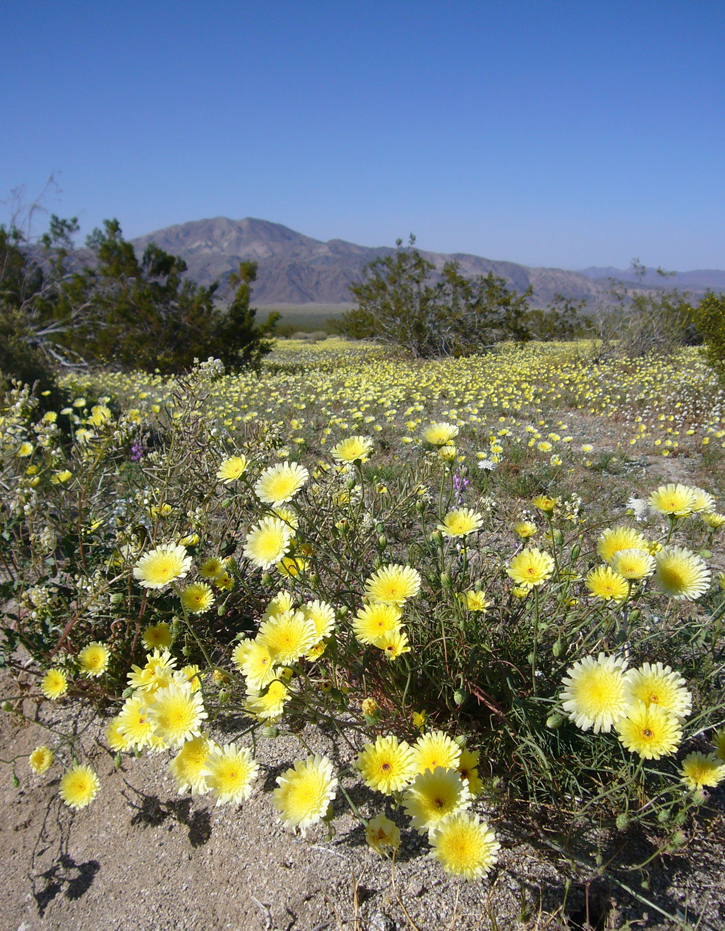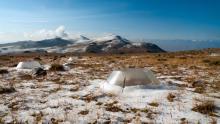
Experiments Do Not Adequately Predict Plant Responses to Global Climate Change, NCEAS Researchers Say


Plants may be reacting to climate change more than we think, and the uncertainty could leave us ill-prepared for the future effects of global warming, says an international team of scientists. Their findings, in the article "Warming experiments underpredict plant phenological responses to climate change," is published in the early online edition of the journal Nature.
"This suggests that predicted ecosystem changes –– including continuing advances in the start of spring across much of the globe –– may be far greater than current estimates based on data from experiments," said the paper's first author Elizabeth Wolkovich, an ecologist at the University of British Columbia, who led the working group study at the National Center for Ecological Analysis and Synthesis (NCEAS) at UC Santa Barbara.
Using data accumulated from studies spanning four continents and the responses of 1,634 plant species to temperature change, the researchers found that the advances in the timing of flowering and leafing were less sensitive to temperature changes in warming experiments compared to long-term observations. These results were robust when comparing the same species in experiments and observational studies.
"Long-term records estimate 5-6 days' change in leafing and flowering per degree Celsius, and this is consistent using different long-term datasets, different subsets of species, and different methods for calculating the sensitivities –– the change in days per degree Celsius," said NCEAS researcher Stephanie Pau. "This is compared to a response of less than 1-2 days per degree C estimated using experiments, and these results are less consistent across different studies and species."
The discrepancy has led the scientists, who come from 22 institutions, including the U.S. Geological Survey and the NASA Goddard Institute for Space Studies, to conclude that current models for climate change studies that use experimental evidence should be re-evaluated.
There are several possible reasons, according to the study, that experimental results don't match long-term field observations, including differences in the time frames between experiments and observations, and a fundamental shift in plant responses since the significant warming of the Northern Hemisphere starting in the 1970's. Other issues may include the elements of the experiments themselves –– soil and moisture conditions that could influence plant development as well as lack of, or variation in, the reporting of environmental metrics.
Phenology, or the study of recurring life-cycle events –– in this case the flowering and leafing of plants –– is one of the most critical indicators of how plants respond to gradual global warming: The warmer the climate, the sooner plants leaf and flower. Because historical records are scarce for some locations, and current measurements may already be the result of ongoing climate change, researchers rely on small test plots and artificial warming methods to simulate a future climate that reflects the effects of global warming. By these methods they can also control for hidden variables that affect plant responses.
"Some things that can be done include better standardized measurements of temperature for experiments in much the same way observational networks have standardized measurements, and monitoring of temperature," said Pau.
So what does it mean that plants leaf and flower sooner? In some situations, said co-author Susan Mazer, a professor at the UC Santa Barbara Department of Ecology, Evolution and Marine Biology, it might increase and lengthen plant productivity, assuming pollinators emerge early as well. In other instances, a "phenological mismatch" may occur, a situation in which plants and their pollinators miss each other, resulting in decline in these populations and others that may depend on them.
The larger ecological consequences of an earlier spring are fairly well understood, said Mazer. However, research still needs to be done to understand the more specific and complex effects.
"The specific consequences of earlier leafing and flowering of plant species are, for most species, completely unknown," said Mazer.
Related Links



